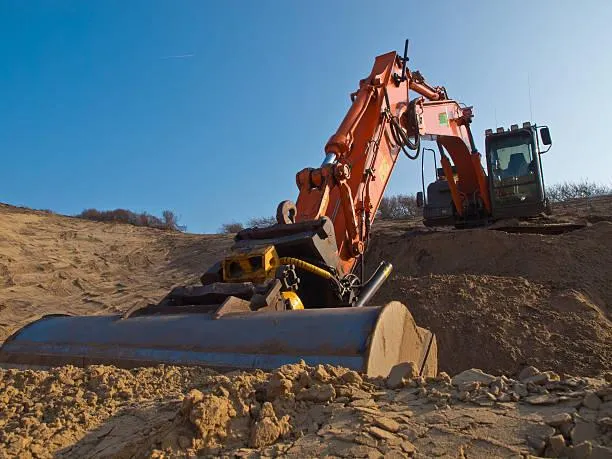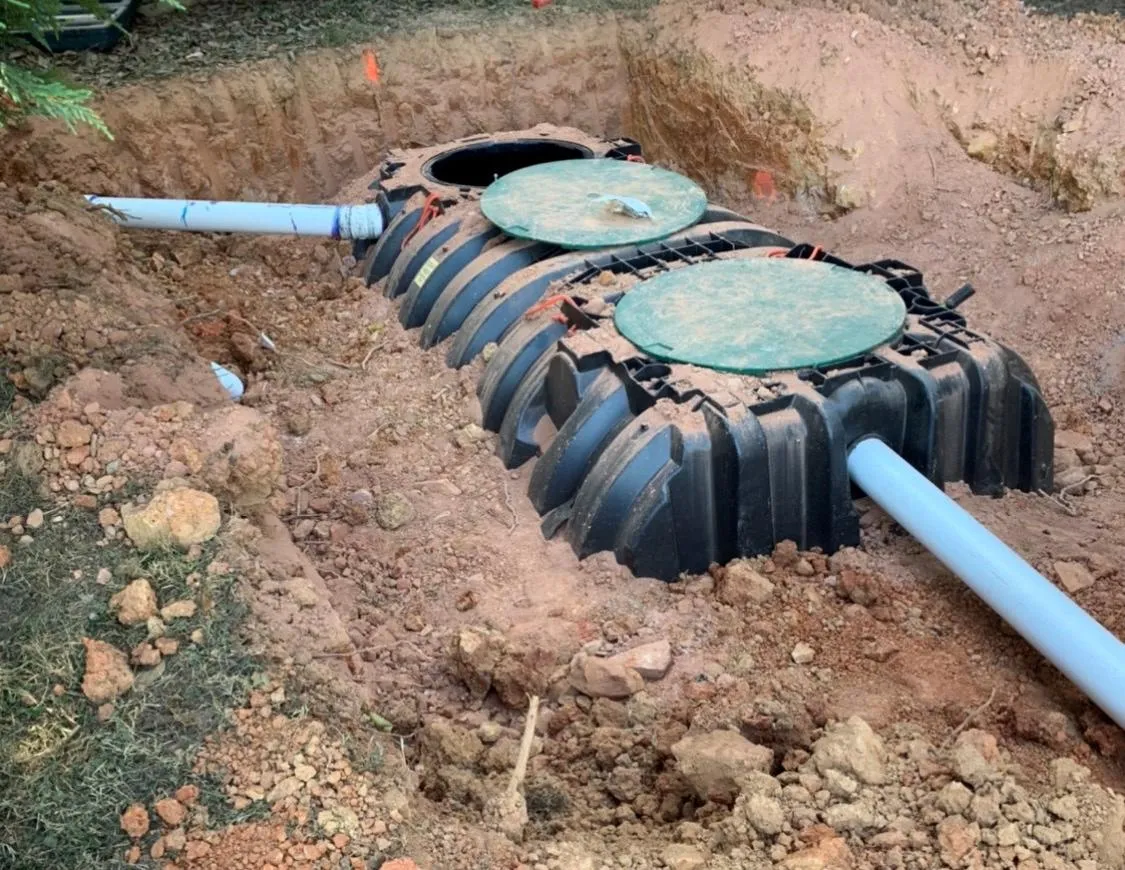
Septic Systems in Spartanburg, SC & Surrounding Areas: Protecting Your Soil and Groundwater
Homeowners in Spartanburg, Greenville, Greer, Gaffney, Boiling Springs, Chesnee, Clifton, Duncan, Landrum, Wellford, and nearby Upstate South Carolina communities depend on reliable septic systems to protect property value, groundwater, and the environment. When septic systems fail, untreated wastewater can contaminate soil, spread harmful bacteria, and threaten local rivers, lakes, and drinking wells. This guide answers the most important questions about septic system soil contamination—its causes, warning signs, effects, testing methods, prevention strategies, and the professional services Rock Solid Excavation SC provides to keep your system safe and compliant.
What Causes Septic Systems to Contaminate Soil in Spartanburg and Surrounding Areas?
Septic contamination happens when failing systems discharge untreated wastewater into the soil. In Spartanburg County, where clay-heavy soil slows percolation, the ground often struggles to absorb effluent. Once the soil’s natural filtering ability is exceeded, wastewater can pool on the surface or spread sideways, allowing bacteria, viruses, nitrates, and other pollutants to enter groundwater and nearby waterways.
How Do Septic Systems Pollute Groundwater in Upstate South Carolina?
A malfunctioning septic system releases raw sewage into the drain field. When soil saturation occurs, the filtration process breaks down. As a result, pathogens spread illness, nitrates contaminate well water, phosphorus feeds algae blooms, and chemicals or medications enter streams and lakes. Both EPA and SCDHEC studies confirm that septic failures are one of the leading causes of groundwater contamination in communities like Spartanburg, Greenville, and surrounding towns.
What Local Factors Increase Contamination Risks in Spartanburg County?
Several local conditions raise the risk of septic soil contamination. Clay-dense soils reduce absorption, while heavy spring rains can overwhelm drain fields and speed the spread of untreated wastewater. The proximity of homes to rivers and lakes such as the Pacolet River and Lake Bowen increases groundwater vulnerability. On top of that, poor or irregular maintenance accelerates system failures in both homes and businesses throughout Greer, Gaffney, Duncan, and Landrum.
What Are the Warning Signs of Septic System Soil Contamination?
Homeowners can often spot contamination by noticing unusual patterns around their property. Pooling water or soggy patches above the drain field indicate saturation. Persistent sewage or sulfur odors near tanks and pipes often point to bacterial buildup. Even changes in lawn growth—such as unusually green or patchy grass—can signal effluent surfacing. Inside the home, slow drains, gurgling pipes, or recurring backups serve as red flags that contamination may already be occurring. Residents in Boiling Springs, Chesnee, Clifton, and Wellford should treat these symptoms as urgent warning signs.
How Can Septic System Failure Affect Your Well Water?
When untreated wastewater seeps into groundwater, it can carry E. coli, nitrates, and other harmful substances directly into private wells. This is especially concerning for rural communities in Chesnee and Landrum, where many families depend on well water for daily use. Contaminated wells pose serious health risks, but regular water testing helps detect changes early, ensuring homeowners can act before contamination becomes severe.
What Health and Environmental Risks Come From Septic Soil Contamination?
The health effects of contamination are wide-ranging. Wastewater-borne germs can cause gastrointestinal illness, skin infections, and respiratory problems, while high nitrate levels in drinking water can be especially dangerous for infants. Beyond human health, environmental consequences include algae blooms, fish kills, and reduced oxygen levels in lakes and rivers. Over time, these effects diminish biodiversity and disrupt ecosystems in Spartanburg, Greenville, and surrounding towns.
How Can Property Owners Test for Septic Soil Contamination in Spartanburg?
Testing for contamination requires a professional approach. Soil samples are taken across the drain field and analyzed in a certified laboratory for bacteria, nitrates, and phosphorus. At the same time, well water samples are tested for microbial and chemical indicators. Together, these tests provide a clear picture of how widespread contamination is. Rock Solid Excavation SC offers systematic testing across Spartanburg County and nearby towns, delivering reliable results and customized cleanup recommendations.
When Should You Schedule Professional Testing?
Routine testing is recommended every one to three years to monitor soil and water health. Testing should also be performed immediately if there are warning signs such as odors, pooling water, or indoor backups. It is especially important to schedule assessments before selling a property, building new construction, or upgrading a system. By acting quickly, homeowners in Greer, Duncan, Clifton, and Wellford can prevent small septic problems from escalating into costly and widespread contamination.
What Maintenance Practices Prevent Septic System Contamination?
The best defense against contamination is consistent maintenance. Inspections should be carried out every one to three years, and septic tanks pumped every three to five years depending on household size and system capacity. Directing rainwater away from the drain field prevents flooding, while using septic-safe cleaning products protects beneficial bacteria inside the tank. Checking lids, risers, and distribution boxes each year ensures that wastewater is evenly dispersed. These preventative measures extend system life and reduce contamination risks in Spartanburg, Greenville, Gaffney, and surrounding areas.
How Does Rock Solid Excavation SC Help Prevent and Repair Contamination?
Rock Solid Excavation SC provides comprehensive solutions for homeowners throughout Spartanburg County and Upstate South Carolina. The team uses advanced diagnostics such as drain line cameras, dye testing, and electronic mapping to identify system failures. Targeted repairs include pipe replacements, drain field restoration, and component upgrades. For urgent issues, 24/7 emergency services like pumping and bypass systems prevent further damage while permanent solutions are planned. Soil remediation methods, such as replacing saturated soil or applying biological treatments, restore environmental health and groundwater safety. Free estimates and consultations are available for homeowners in Spartanburg,Greenville, Greer, and neighboring towns.
Final Thought
Septic systems play a vital role in protecting homes, families, and the environment across Spartanburg, Greenville, and surrounding Upstate South Carolina communities. When these systems fail, the consequences can be costly and dangerous—but with regular maintenance, timely testing, and professional repairs, homeowners can avoid most risks. Partnering with trusted experts like Rock Solid Excavation SC ensures your septic system stays reliable, your property remains safe, and your water supply is protected for generations to come.

How often should I pump my septic tank in Spartanburg?
Most septic tanks should be pumped every 3–5 years, depending on household size, water use, and system capacity.
What are the early signs my septic system is failing?
Slow drains, gurgling noises, sewage odors, or pooling water near the drain field often indicate problems.
Can heavy rains cause my septic system to back up?
Yes, Spartanburg’s clay-heavy soils and spring storms can oversaturate drain fields, causing backups and surface pooling.
Is septic contamination dangerous for well water?
Absolutely. Failing systems can leak bacteria, nitrates, and chemicals into groundwater, threatening private wells
Do I need a permit to repair or replace my septic system in South Carolina?
Yes. The South Carolina Department of Health and Environmental Control (SCDHEC) requires permits for installations, repairs, and modifications.
